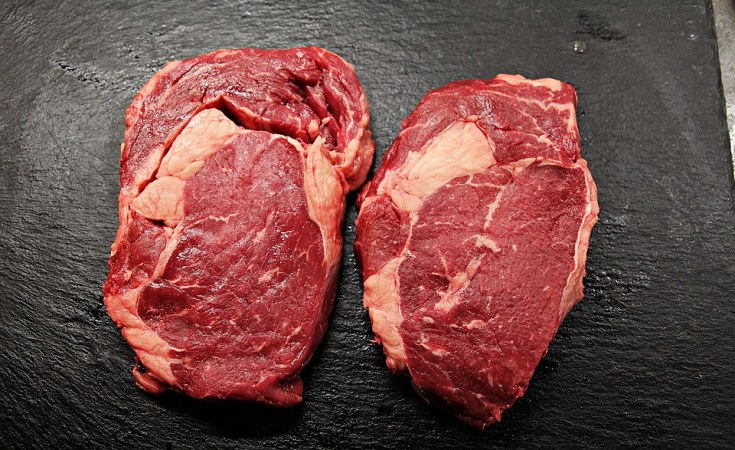The owner of the cow from Kanguku Village, Christopher Ngugi, described how, on Wednesday of last week, he came home to discover one of his cows lying in the cowshed, showing signs of an unidentified illness.
He immediately notified the local animal health officer, who came to treat the cow and give him advice on how to handle the condition.
The farmer told the media that the animal was given the all-clear by the officer, who, with the help of a few men from the village, tore open the animal’s abdomen and discovered that it had ingested pieces of clothing and polythene papers, which he claimed blocked the animal’s airways and ultimately caused it to die.
The farmer went on to explain that as a result, farmers flocked to the home in droves to buy meat from the animal for Ksh. 400 per kilogram rather than Ksh. 600, which is the price the commodity is sold for at local butcheries.
The farmer was flanked by his wife, Margaret Nyambura, who stated that it was not until last week, on Wednesday, that his other cow died of a mysterious disease, the carcass of which was buried under the inspection of animal health officers, who confirmed the animal had died of anthrax.
Nyambura revealed that the animal died almost simultaneously, with several men who had slaughtered it beginning to show symptoms of wounds and blisters on their limbs, as well as others who ate the meat at home and in local eateries.
During our visit to the villages, we met several residents who had contracted the disease.
The victims were treated at Muranga Level Five Hospital, Sabasaba Health Centre, and Mugumoini Dispensary, among other health facilities, with one patient currently receiving treatment at Maragua Level Four Hospital.
An estimated 150 people purchased the meat to distribute to members of their families, with upwards of 600 more suspected of eating the meat, with young children among the sick.
Residents are now urging the Murang’a County government to send medics to the affected villages to provide treatment, claiming that many of them cannot afford to travel to hospitals.
They are also urging animal health officers from the veterinary department to visit and vaccinate their animals in order to save them from certain death and slow the spread of the disease.
Several dogs died after eating the sick cow’s meat and bones, and farmers in the affected villages were advised not to drink or sell milk from their animals.
Ngugi put the cost of his two dead cows at sh 200,000.



